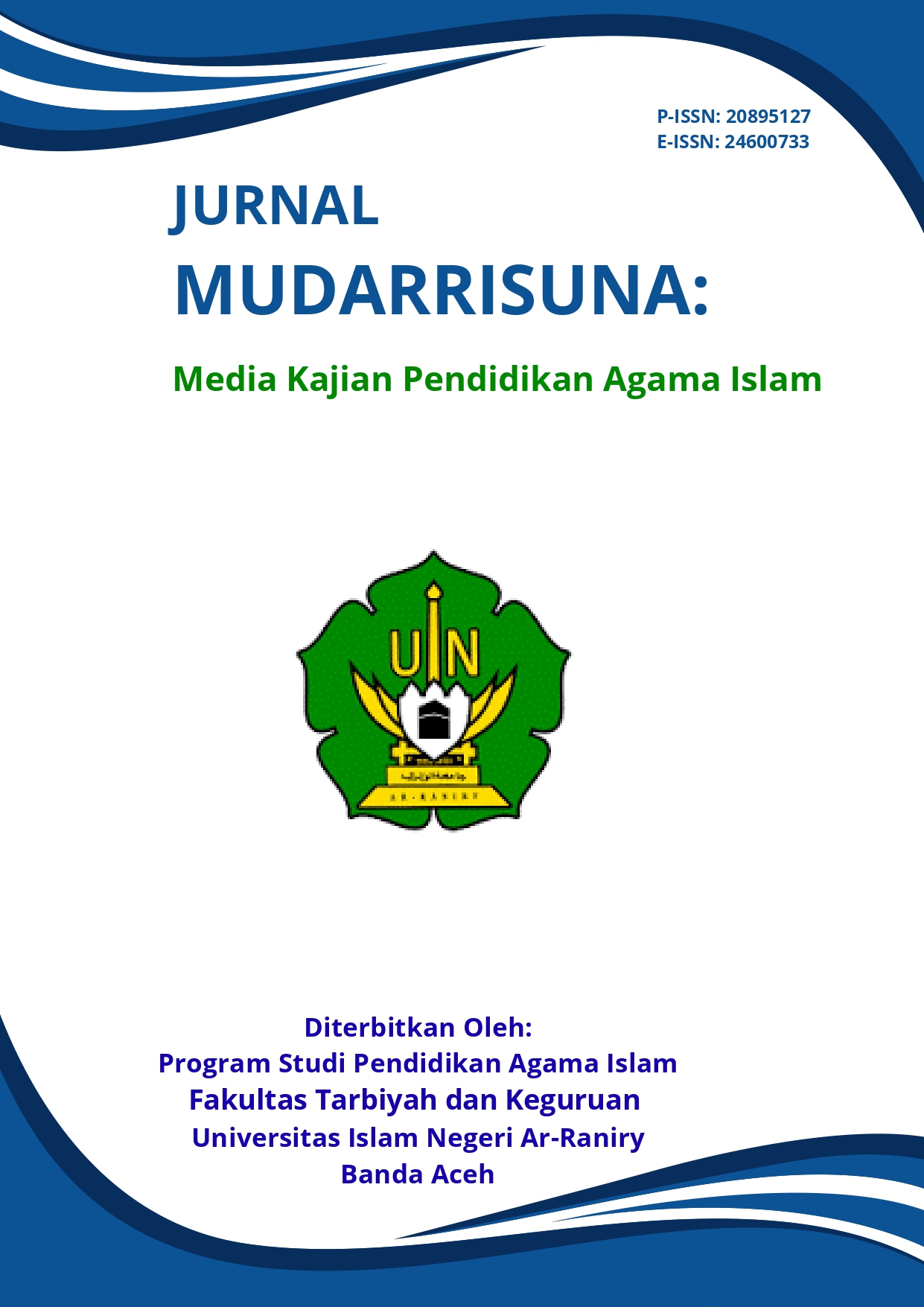Motivational Influences and Challenges in Quranic Recitation Proficiency: A Study Among Islamic Educational Teacher Training Department State Islamic University Ar-Raniry Banda Aceh Students
DOI:
https://doi.org/10.22373/jm.v13i2.22103Keywords:
Quranic Recitation, Motivational Factors, Teaching Methods, Islamic Education, Student ProficiencyAbstract
This study delves into the complex dynamics of Quranic recitation proficiency among students in the Islamic Educational Teacher Training Department at State Islamic University Ar-Raniry, Banda Aceh. Through surveys, interviews, and discussions, the research explores motivational factors, challenges faced, and the relationship between teaching methods and proficiency, and proposes strategies for enhancement. The findings emphasize the importance of understanding intrinsic and extrinsic motivations, addressing challenges hindering proficiency, and adopting interactive and culturally sensitive teaching methods. By integrating personalized learning approaches, teacher training programs, and community engagement initiatives, this study provides valuable insights for optimizing Quranic education, fostering motivation, and nurturing a deep connection with religious heritage.
References
Al-Busaidi, F. Y. (2019). The Socio-Cultural Factors Influencing Learners of Arabic in the Sultanate of Oman. International Education Studies, 12(8), 72. https://doi.org/10.5539/ies.v12n8p72
Assingkily, M. S. (2019). Living Qur’an as a Model of Islamic Basic Education in the Industrial Era 4.0. Al Ibtida: Jurnal Pendidikan Guru MI, 6(1), 19. https://doi.org/10.24235/al.ibtida.snj.v6i1.3876
Bandura, A. (1978). Self-efficacy: Toward a unifying theory of behavioral change. Advances in Behaviour Research and Therapy, 1(4), 139–161. https://doi.org/10.1016/0146-6402(78)90002-4
Basit, A., Putra, D. I. N., Sudin, M., Busahdiar, Shofiyah, S., Mawarni, E., Rosfiani, O., & Hermawan, C. M. (2023). Islamic Religious Education Instructors’ Efforts to Improve Students’ Al-Qur’an Reading Abilities. Atlantis Press SARL. https://doi.org/10.2991/978-2-38476-078-7_11
Centre for Education Statistics and Evaluation. (2017). Cognitive load theory: Research that teachers really need to understand. Centre for Education Stratistics and Evaluation, August, 12. https://evidenciaenlaescuela.files.wordpress.com/2017/09/cognitive_load_theory_report_aa1.pdf
Cooper, S. P. (2023). Assimilation and Accommodation. Psychoanalysis and Zen Buddhism, 115–128. https://doi.org/10.4324/9781003289821-14
Deci, E. L., & Ryan, R. M. (2015). Self-Determination Theory. 11, 7886–7888.
Dunn, J. C., & Zimmer, C. (2020). Self-determination theory. Routledge Handbook of Adapted Physical Education, 55(1), 296–312. https://doi.org/10.4324/9780429052675-23
Musa, N., Hamid, N. A., & Ishak, M. S. (2021). Understanding the Trends of Digital Literacy Among Islamic Students (Positive Internet Analysis Study). DAYAH: Journal of Islamic Education, 4(2), 141. https://doi.org/10.22373/jie.v4i2.10360
Nurani, S., Maulana, L., & Purwati, E. (2022). Living Qur’an as New Market Trends of Islamic Education in Indonesia. Hayula: Indonesian Journal of Multidisciplinary Islamic Studies, 6(1), 1–18. https://doi.org/10.21009/hayula.006.01.01
Sabo, D. M. K. (2023). Importance of the Glorious Qur’an and how it Places the Value of Ilm-Al-Tajwid in Hausaland. Sprin Journal of Arabic-English Studies, 2(01), 01–09. https://doi.org/10.55559/sjaes.v2i01.29
Sweller, J., Ayres, P., & Kalyuga, S. (2011). Cognitive Load Theroy. In Recenti Progressi in Medicina (Vol. 82, Issue 1).
Verenikina, I. (2003). Vygotsky’s Socio-Cultural Theory and the Zone of Proximal Development. Information Systems and Activity Theory: Expanding the Horizon, 4–14. http://ro.uow.edu.au/sspapers/3201
Downloads
Additional Files
Published
Issue
Section
License
Jurnal MUDARRISUNA: Media Kajian Pendidikan Agama Islam allows the author(s) to hold the copyright and to retain the publishing rights without restrictions. Authors who publish in this journal agree to the following terms:
- Authors retain copyright and grant the journal right of first publication with the work simultaneously licensed under a Creative Commons Attribution-ShareAlike 4.0 International License that allows others to share the work with an acknowledgment of the work's authorship and initial publication in this journal.
- Authors are able to enter into separate, additional contractual arrangements for the non-exclusive distribution of the journal's published version of the work (e.g., post it to an institutional repository or publish it in a book), with an acknowledgment of its initial publication in this journal.
- Authors are permitted and encouraged to post their work online (e.g., in institutional repositories or on their website) prior to and during the submission process, as it can lead to productive exchanges, as well as earlier and greater citation of published work.




